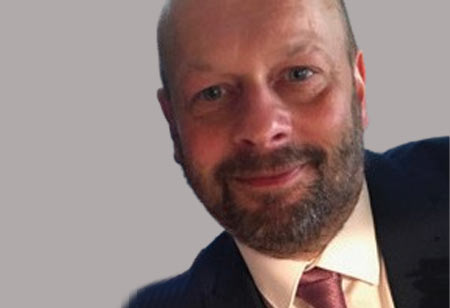Thank you for Subscribing to Healthcare Business Review Weekly Brief

Efficiently Implementing Preventative Maintenance Programs with Skilled Engineers
Healthcare Business Review
Mark Hornby is an experienced healthcare professional who has served the National Health Service (NHS) for over 32 years. His extensive background in medical equipment enables him to serve as the Medical Engineering Manager at Salford Royal. He is responsible for delivering a modern, customer focused technical service for medical equipment and manage a responsive, efficient and cost-effective department. This is a pivotal role in ensuring consistent, clinical excellence in the availability, adoption and use of medical technology. The role involves close working with other medical device service team managers to meet key goals and objectives. Mark Hornby plays a vital role in ensuring the effective and safe use of medical equipment within the healthcare system.
In an exclusive interview with MedTech Outlook Europe magazine, Mark Hornby shares his valuable insights on the importance of medical equipment maintenance in the industry.
Could you describe your role and responsibilities at the Northern Care Alliance NHS Foundation Trust?
My role as a medical engineering manager at the facility entails various responsibilities, from management to hands-on involvement in equipment selection and quality assurance. I oversee a team of 24 engineers and liaise with wards and departments throughout the day. My responsibilities involve ratifying pre-purchase questionnaires for prospective buyers and responding to customer inquiries regarding specific medical equipment. I also analyze our monthly performance figures for PPMs (Planned Preventative Maintenance) and repairs. It involves preparing detailed reports for the department, which aids in optimizing our operations. Furthermore, we enable our staff to make well-informed clinical decisions about the most suitable equipment for services.
Can you tell us about the importance of the maintenance program for medical devices?
We have around 29,000 devices on our PPM list, emphasizing the scale and significance of maintenance efforts. The primary goal of this program is to ensure the smooth functioning of the equipment and prevent any unexpected breakdowns that could disrupt the operations.
Our collaboration with product suppliers and the flexibility to work across different hospital sites allows our engineers to stay at the forefront of medical technology.
To efficiently manage this large number of devices, we have categorized them based on their risk ratings. High-risk equipment receives more frequent attention and undergoes maintenance in the same quarter every year. On the other hand, low-risk equipment, like feed pumps, is scheduled for maintenance every two years, as it is less likely to experience critical issues.
I am tasked with ensuring the PPM program is well-coordinated and executed flawlessly. By adhering to this program, we minimize the chances of equipment failure and, in turn, reduce the likelihood of complaints from customers or any disruptions to our services.
What are the current challenges you face in the medical equipment industry?
One of the most significant challenges we are currently encountering in the industry is the availability of skilled personnel to operate and maintain medical equipment effectively. Since the pandemic, there seems to be a skill shortage, making it difficult to find the right caliber of staff to work with us.
What measures are you taking to address these challenges?
Our approach to tackling the skill shortage and fostering employee growth revolves around a comprehensive training program for freshly graduated engineers.
Upon joining our team, new engineers undergo initial training, starting with simpler tasks. As they progress, we encourage them to apply for higher-level positions. Additionally, we arrange training courses with product suppliers for new equipment. Engineers have the chance to work across hospitals in the Northern Care Alliance, specializing in various areas like neurosurgery and childbirth, enriching their CVs with diverse experiences.
Do you have any exciting projects that you have been working on recently?
We're thrilled to receive a new seven-story hospital building by the end of July, which we aim to make operational by October. Our focus is currently on the pre-purchase stage, where we're diligently handling PAQ documents and authorizing necessary orders. In the meantime, we have been actively inspecting the building, identifying any issues, and communicating with the builders about specific requirements, such as installing shelves for monitors and defibrillators.
What advice would you give to budding professionals in the industry?
Remembering that a happy workforce is a valuable asset amid all the challenges we face is essential. A content and motivated team will go above and beyond for you. In our busy department, it's easy to lose sight of this, but I consciously try to engage with my staff beyond emails. Regular face-to-face conversations with engineers in the workshops and helping personal attention keep them energized and improve retention.









